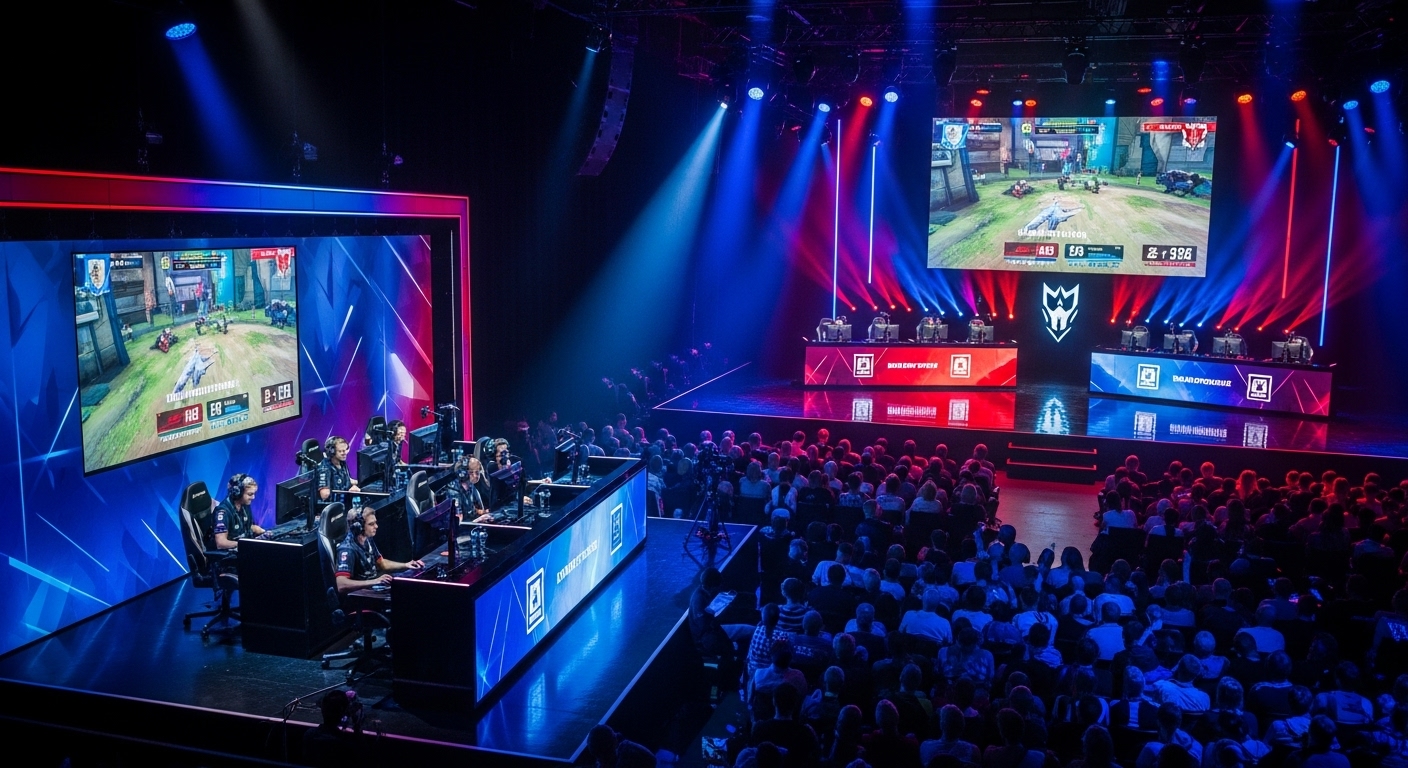Introduction: The Evolution of Competitive Play
Once considered a niche hobby, video gaming has transformed into a billion-dollar global industry. Today, esports—organized, competitive gaming—has become one of the most dynamic entertainment sectors. It combines the thrill of traditional sports with the creativity and strategy of gaming, captivating millions of fans around the world.
The Birth of Esports
The roots of esports can be traced back to the early 1970s when gamers competed in arcade tournaments. However, the real growth began in the late 1990s and early 2000s with the rise of high-speed internet and multiplayer gaming. Titles like Counter-Strike, StarCraft, and Dota helped shape the competitive landscape, creating communities that valued skill, teamwork, and strategy.
The Modern Esports Industry
Today, esports is a global phenomenon with professional teams, sponsorship deals, and massive prize pools. Major tournaments such as The International for Dota 2 and League of Legends World Championship attract millions of viewers online and in packed arenas. Game developers, sponsors, and streaming platforms have all contributed to turning esports into a mainstream form of entertainment.
The Role of Technology
Advancements in technology have been crucial to esports growth. High-speed internet, powerful gaming hardware, and live-streaming platforms allow fans to experience the action in real-time. Social media has also played a key role by enabling direct interaction between players and their audiences, creating a close-knit global community.
Career Opportunities in Esports
Esports is no longer just about playing games—it has created a wide range of career paths. Professional players, shoutcasters, analysts, event organizers, and content creators all play essential roles in the ecosystem. Educational institutions are also offering esports programs, helping students develop skills in management, marketing, and game design.
Esports and Traditional Sports: A Growing Connection
Many traditional sports organizations are investing in esports teams, recognizing the potential of digital competition. The overlap between esports and sports fans is increasing, and both industries are learning from each other. Fitness, teamwork, and discipline—once associated only with physical sports—are now fundamental values in competitive gaming as well.
The Global Impact of Esports
Esports transcends borders, bringing together players and fans from different cultures. International tournaments foster unity and collaboration while celebrating diversity in gaming styles and strategies. Countries like South Korea, China, and the United States have become esports powerhouses, but emerging regions are quickly catching up.
Challenges and the Road Ahead
Despite its success, esports faces challenges such as player burnout, fair competition, and maintaining integrity. Organizations are now focusing on player well-being and implementing strict rules against cheating and match-fixing. With proper governance, esports is poised for sustainable growth in the coming decades.
Conclusion: A New Era of Competition
Esports has moved far beyond a pastime—it is now a global stage where skill, strategy, and passion converge. As technology continues to evolve, the boundaries of what’s possible in competitive gaming will expand even further. The rise of esports represents not just the future of entertainment, but a new chapter in the history of human competition.

